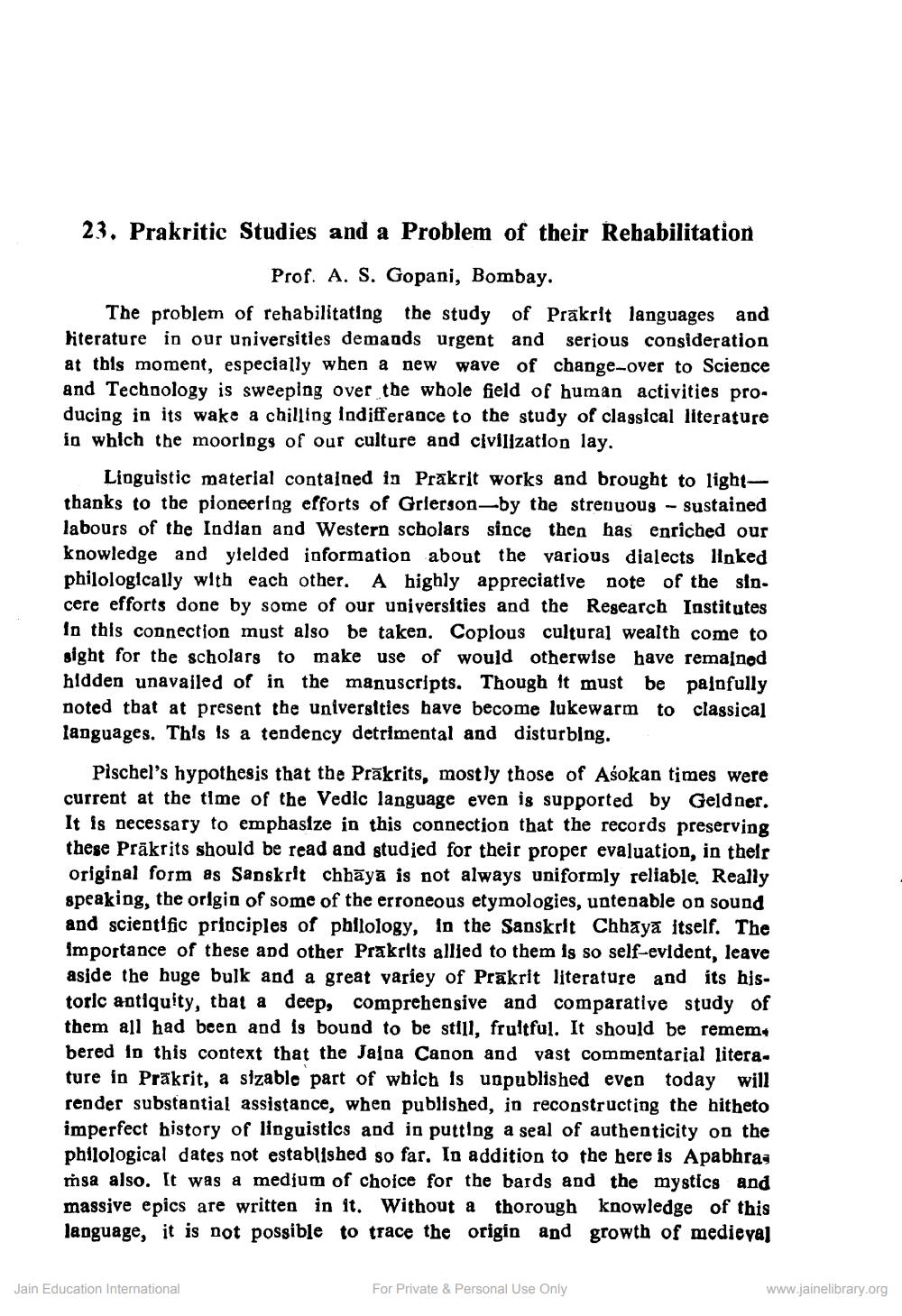________________
23. Prakritic Studies and a Problem of their Rehabilitation
Prof. A. S. Gopani, Bombay. The problem of rehabilitating the study of Prakrit languages and literature in our universities demands urgent and serious consideration at this moment, especially when a new wave of change-over to Science and Technology is sweeping over the whole field of human activities producing in its wake a chilling Indifferance to the study of classical literature in which the moorings of our culture and civilization lay.
ay
Linguistic material contained in Prakrit works and brought to lightthanks to the pioneering efforts of Grierson-by the strenuous -- sustained labours of the Indian and Western scholars since then has enriched our knowledge and yielded information about the various dialects linked philologically with each other. A highly appreciative note of the sin. cere efforts done by some of our universities and the Research Institutes in this connection must also be taken. Copious cultural wealth come to sight for the scholars to make use of would otherwise have remained hidden unavailed of in the manuscripts. Though it must be painfully noted that at present the universities have become lukewarm to classical languages. This is a tendency detrimental and disturbing.
Pischel's hypothesis that the Prākrits, mostly those of Asokan times were current at the time of the Vedic language even is supported by Geldner. It is necessary to emphasize in this connection that the records preserving these Prākrits should be read and studied for their proper evaluation, in their original form as Sanskrit chhāyā is not always uniformly reliable. Really speaking, the origin of some of the erroneous etymologies, untenable on sound and scientific priociples of philology, in the Sanskrit Chhaya itself. The importance of these and other Prakrits allied to them is so self-evident, leave aside the huge bulk and a great variey of Präkrit literature and its historic antiquity, that a deep, comprehensive and comparative study of them all had been and is bound to be still, fruitful. It should be remem, bered in this context that the Jalna Canon and vast commentarial litera. ture in Prakrit, a sizable part of wbich is unpublished even today will render substantial assistance, when published, in reconstructing the hitheto imperfect history of linguistics and in putting a seal of authenticity on the philological dates not established so far. In addition to the here is Apabhra, msa also. It was a medium of choice for the bards and the mystics and massive epics are written in it. Without a thorough knowledge of this language, it is not possible to trace the origin and growth of medieval
Jain Education International
For Private & Personal Use Only
www.jainelibrary.org




